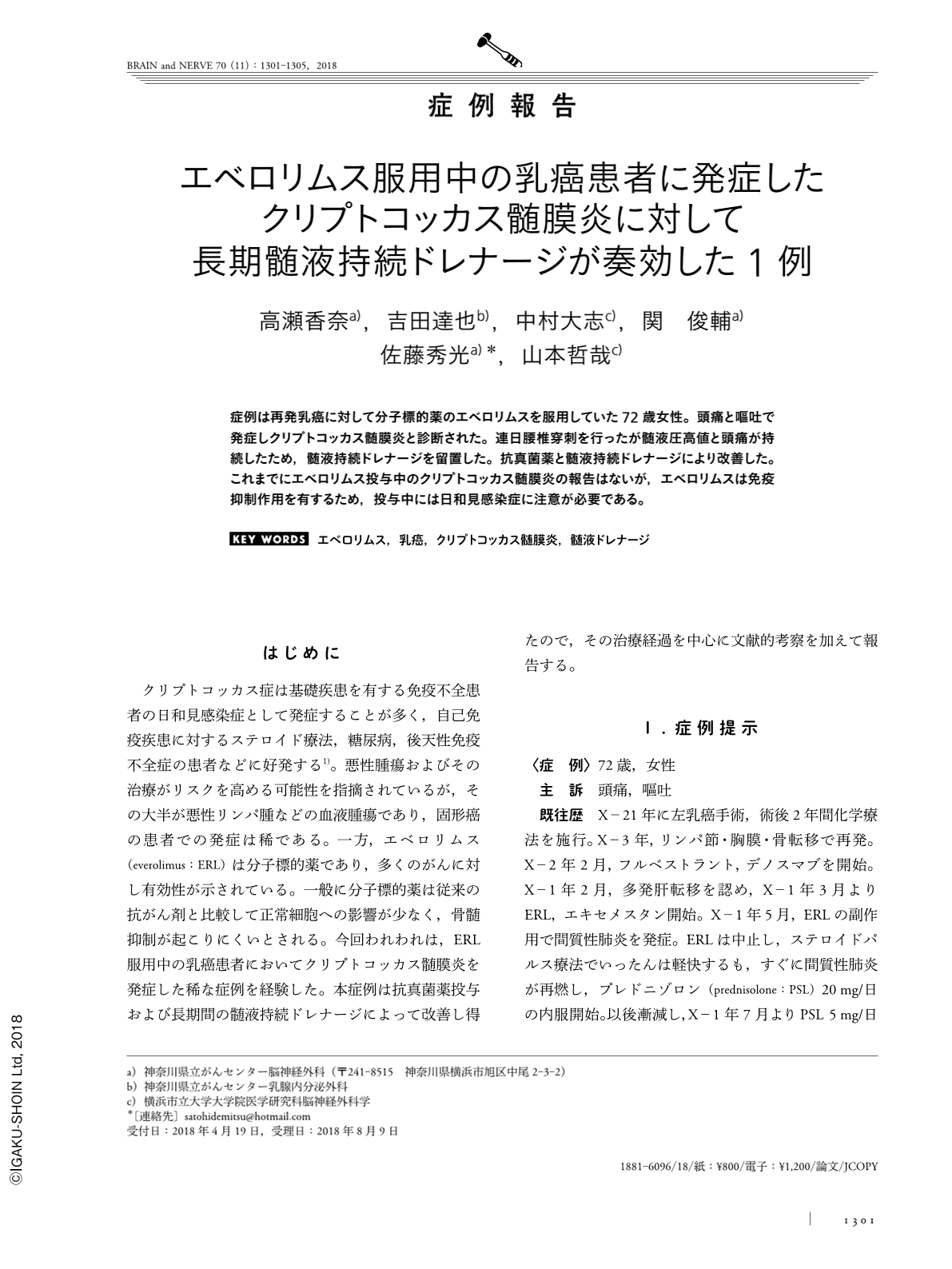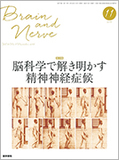Japanese
English
- 有料閲覧
- Abstract 文献概要
- 1ページ目 Look Inside
- 参考文献 Reference
症例は再発乳癌に対して分子標的薬のエベロリムスを服用していた72歳女性。頭痛と嘔吐で発症しクリプトコッカス髄膜炎と診断された。連日腰椎穿刺を行ったが髄液圧高値と頭痛が持続したため,髄液持続ドレナージを留置した。抗真菌薬と髄液持続ドレナージにより改善した。これまでにエベロリムス投与中のクリプトコッカス髄膜炎の報告はないが,エベロリムスは免疫抑制作用を有するため,投与中には日和見感染症に注意が必要である。
Abstract
Cryptococcosis is a fungal infection that mainly occurs in immunocompromised patients. We present the first case of cryptococcal meningitis in a patient who was being administered everolimus for breast cancer. Everolimus, a selective inhibitor of mammalian target of rapamycin, is a molecular targeting agent that is administered not only as an immunosuppressive agent, but also as an anticancer therapeutic. A 72-year-old woman with recurrent breast cancer had been receiving everolimus. She was admitted to our hospital with headache and vomiting. Lumbar puncture revealed high opening pressure, and cerebrospinal fluid (CSF) evaluation diagnosed cryptococcal meningitis. She was administered liposomal amphotericin-B, followed by fosfluconazole. Daily lumbar puncture was insufficient to reduce the high intracranial pressure; thus, continuous lumbar drainage was needed to improve her symptoms. The indwelling catheter was replaced regularly to prevent bacterial infection. She was treated successfully with extracorporeal CSF drainage for 86 days and fosfluconazole administration over 17 weeks. The patient recovered fully and was discharged on day 153 of hospitalization. As patients who receive everolimus are potentially immunocompromised hosts, we recommend that the medicine be administered with caution considering opportunistic infections when used in patients with cancer.
(Received April 19, 2018; Accepted August 9, 2018; Published November 1, 2018)

Copyright © 2018, Igaku-Shoin Ltd. All rights reserved.


